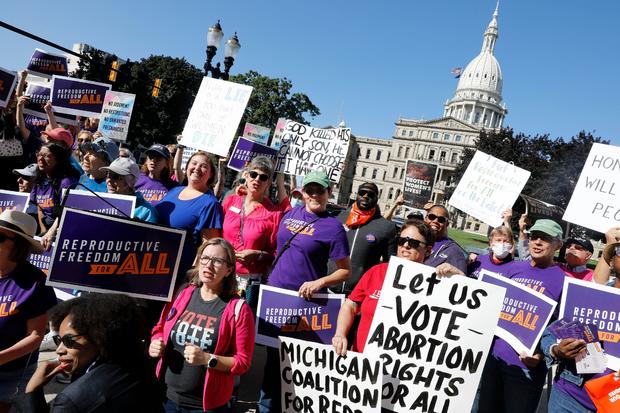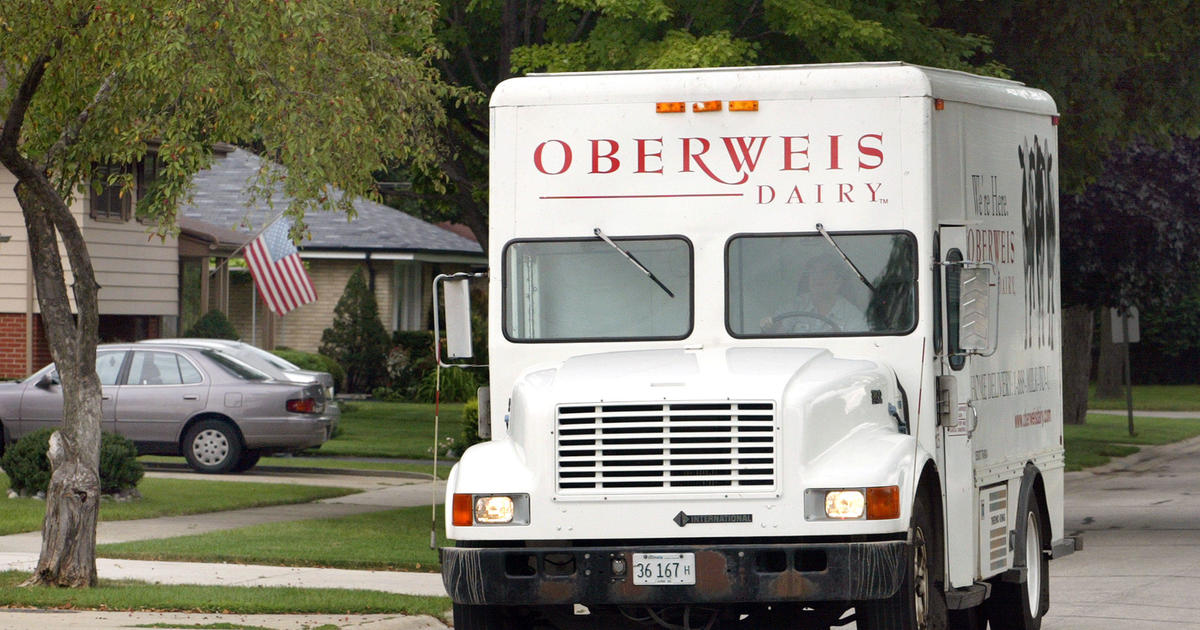Michigan judge strikes down state's 1931 ban on abortion as unconstitutional
In a victory for abortion rights supporters, a Michigan judge has invalidated the state's 90-year-old ban on abortions that remained on the books but had not been enforced since the Supreme Court's 1973 decision in Roe v. Wade.
The 90-year-old law, which makes performing an abortion a felony in most instances, lay dormant for nearly 50 years following the high court's landmark ruling in Roe. But abortion providers in Michigan went to state court in April to block the measure's enforcement and challenge its legality under the state's constitution in anticipation of a decision from the Supreme Court reversing Roe. The high court rolled back the constitutional right to an abortion in June, leaving abortion policy up to the states.
In a 39-page decision, Judge Elizabeth Gleicher ruled Michigan's pre-Roe law violates the state constitution, as its enforcement "would deprive pregnant women of their right to bodily integrity and autonomy, and the equal protection of the law." She also permanently blocked Michigan's attorney general, Dana Nessel, from enforcing the law, though Nessel, who supports abortion rights, had said she would not prosecute women seeking abortions or their doctors if Roe were overturned.
Gleicher ordered the attorney general to "personally serve" a copy of the decision to all county prosecuting attorneys in Michigan and advise them that the pre-Roe ban was declared unconstitutional.
"Manifestly, criminalizing abortion will eliminate access to a mainstay healthcare service," she wrote. "For 50 years, Michiganders have freely exercised the right to safely control their health and their reproductive destinies by deciding when and whether to carry a pregnancy to term. Eliminating abortion access will force pregnant women to forgo control of the integrity of their own bodies, regardless of the effect on their health and lives."
The legal issue presented in the case is whether the state's constitution "empowers the legislature to override personal health decisions by compelling a person to use her body in a manner not of her choosing," Gleicher said. The court, she continued, finds that such compulsion "destroys the sphere of bodily integrity and personal autonomy underlying the liberty component" of the Michigan Constitution's Due Process Clause.
The lawsuit brought by Planned Parenthood of Michigan and Dr. Sarah Wallett, an abortion provider in the state, was filed in the Michigan Court of Claims before the Supreme Court's blockbuster decision, which involved a Mississippi law banning abortions after 15 weeks of pregnancy. The group argued Michigan's pre-Roe ban is unconstitutionally vague and violates the state's constitution.
Enforcement of Michigan's 1931 law was put on hold in May ahead of the Supreme Court's ruling reversing Roe. The GOP-controlled Michigan House and Senate, which both intervened as defendants in the suit, could appeal Gleicher's ruling.
While the Supreme Court rolled back the constitutional right to an abortion with its decision in June, abortion rights supporters asked the court to affirm the right to an abortion under Michigan's constitution.
Highlighting the differences between the federal and state constitutions, Gleicher said their "dissimilarities are particularly salient because they reinforce that due process includes protecting and fostering the health and the bodily integrity of Michigan women."
"A law denying safe, routine medical care not only denies women of their ability to control their bodies and their lives — it denies them of their dignity," she wrote. "Michigan's Constitution forbids this violation of due process."
Alexis McGill Johnson, president and CEO of Planned Parenthood Federation of America, called the ruling a "historic victory" and vowed the organization will continue fighting for abortion access.
"By permanently blocking the 1931 law criminalizing abortion, Michigan's Court of Claims has protected the continuity of care that Michiganders have enjoyed for nearly half a century and ensured that no overzealous prosecutor can come between a patient, their provider, and their health care," she said in a statement.
Michigan was one of nine states with laws banning abortion that predated the Roe decision and were never repealed. But abortion rights supporters in the state pursued multiple avenues to protect abortion access ahead of the Supreme Court's decision this summer, including through the court battle mounted by Planned Parenthood and a separate legal challenge brought by Gov. Gretchen Whitmer.
Abortion rights groups are also working to put on the ballot in November a measure to enshrine the right to an abortion into the Michigan constitution. The Michigan Board of Canvassers rejected the initiative last week, but the Reproductive Freedom for All Campaign asked the Michigan Supreme Court to intervene.




